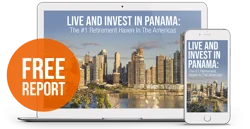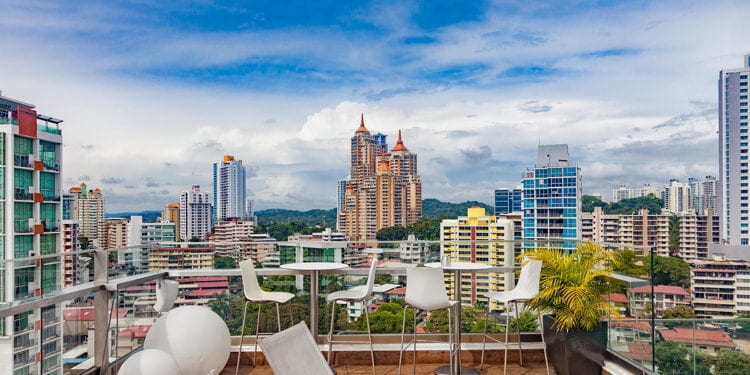In 2008, I took my leave from the publishing company where I’d been working for 23 years. I was 45 years old and living in Paris.
I spent the next three months exploring that city on foot, early to late each day, and got to know Paris well.
I also learned that three months is my limit for doing nothing, even in Paris, and returned home from a long walk one afternoon to announce to my husband that I wanted to start a business of my own.
“We’ll need to leave Paris,” he replied.
We knew from experience that France is no place to build a business. This country does not value entrepreneurs, and running a business here is expensive and hassled. Labor law and the French perspective make every employer the enemy, and French taxes can take half of every dollar your business earns.
We were in the fortunate position at the time of being able to move anywhere, so, as much as we loved living in Paris, the question became:
If France is among the worst places in the world to invest in a business, where would be among the best?
By this time, my husband and I had managed businesses in eight countries. Based on that experience, I made a list of things important to the expat entrepreneur, as follows:
- Quality and cost of infrastructure, especially Internet and banking
- Quality, availability, and cost of English-speaking labor
- The country’s approach to taxation
- The current administration’s perspective on foreign business and foreign investment
- Residency and work permit options
- Cost of doing business, especially office rent
- Ease of setting up a company
- Stability of the local currency (if other than the U.S. dollar)
- Time zone relative to the business’ intended marketplace
- Local labor law
- Local standard of living
I considered the countries I knew from experience and others, too, in the context of these 11 questions, and one stood out—Panama.
The infrastructure in Panama City is the best in the region, in part thanks to the decades-long U.S. military presence here while the Americans ran the Panama Canal. Panama as a whole is a safe, stable, affordable country that uses the U.S. dollar as its currency, meaning no exchange-rate risk. The standard of living is comfortable, even international standard if your budget stretches to allow for it.
Those things, though, are true for many other places that could also make sense for the would-be entrepreneur, including in Latin America but also in Europe and Asia.
Panama’s trump card is the approach it takes to taxation, both personal and corporate. It’s possible to live and run a business you own in Panama, paying little in taxes, even if you’re an American. The list of places around the world where that is true is short. I’m speaking of legal and compliant strategies. It’s not difficult to organize, but you need competent advice from a tax expert who understands both Panama’s approach to taxing corporate income and the obligations to Uncle Sam of an American living and earning money in another country. Probably, really, you need two tax experts, as finding one who understands both sides of this tax picture will be near impossible.
Because I understood Panama’s tax advantages, this country rose quickly to the top of my where-should-I-locate-the-business list. The second reason I focused early on Panama and, in the end, chose it as the place to base my new Internet publishing business is Panama City’s labor pool.
Panama City is a global melting pot. In addition to Panamanians and Americans, who’ve been a part of this landscape for more than 100 years, today’s Panama City is home to Venezuelans, Colombians, El Salvadorans, Hondurans, Costa Ricans, Guatemalans, and Nicaraguans who’ve migrated to Central America’s most developed city in search of safe haven.
Included in this population of regional migrants are investors, who’ve bought real estate and started businesses; unskilled labor in Panama mostly illegal and working as maids and restaurant staff; and, relevant for us, the cream of the regional labor crop, people who recognize they can get better jobs and make more money in Panama City than anywhere else in Central America.
That labor pool was enough to get our attention back in 2008; however, something important happened four years after we moved to Panama that made Panama City an even more interesting place to be an employer. In 2012, Panama’s former President Ricardo Martinelli issued an Executive Order creating what’s become known as this country’s Friendly Nations visa program.
Overnight, Panama was targeted by eager, educated, and English-speaking 20- and 30-somethings from North America and Europe in search of employment opportunities.
Thanks to the Friendly Nations program, these enthusiastic youngsters, then and today, can obtain both easy residency and work permits. It’s a uniquely turnkey program that makes it possible for anyone holding a passport from one of the 48 countries on the “friendly nations” list to be able to live and work legally in Panama almost immediately. Martinelli issued his decree in a creative attempt to provide more qualified labor for the dozens of foreign businesses setting up shop in his country.
Since this visa option became available, we’ve been able to hire staff from the United States, Canada, Ireland, the U.K., Germany, France, Australia, New Zealand, and Belgium, none of whom we would have been able to employ (legally) otherwise.
Thirteen years on in Panama, we’ve built a successful, fast-growing business.
Looking back now over our experiences getting where we are today, what have we learned?
Panama Entrepreneur Tip #1:
Panama City is home to a bigger and better-educated pool of English-speaking labor than anywhere else in Central America and perhaps than anywhere else in all Latin America. However, a sizable percentage of it is what I’ve come to think of as “accidental labor.”
As Panama has become an easy place to establish legal residency and get a job, kids from across North America and Europe have been doing that. Not all of them are interested in working, though. Some are on walkabouts, the post-graduation equivalent of a gap year, wandering around to see what they might see and experience what they might experience. Now Panama makes it possible for them to get jobs and earn a little money to refill their coffers before setting out for their next stop.
I’ve hired 20-somethings from Ireland, Canada, the United States, and Australia who’ve worked for me for six months or so, long enough to save up enough to buy plane tickets onward. Just as I’ve trained them to the point of becoming worth something to the business, they bug out.
On the other hand, I’ve also hired 20-somethings from Ireland, Canada, the United States, and Australia who’ve been with me for years and who I’m now counting on to help push our operations to the next level.
Panama Entrepreneur Tip #2:
Panama celebrates three independence days, all in November, plus 11 other national holidays each year. Almost everyone extends every holiday to include at least one other day off, officially or unofficially, making the bridge between the holiday and the nearest weekend.
In addition, Panama labor law calls for four weeks of paid vacation every year, starting from year one of employment, and stipulates that employees earn into a “sick leave fund” that allows for up to 18 sick days per year with signed doctor letters. I’ve been told by many, including my attorney, that signed doctor letters can be bought on most street corners for US$5.
In addition, on pay days (twice monthly), every employer is required by law to distribute paychecks before lunch so that staff can go on their lunch breaks to their banks to cash them. Historically, this could be a three-hour ordeal. This is less true today, though, as we’re now able to pay most staff online. This country is increasingly high-tech in its approach to doing business.
Panama Entrepreneur Tip #3:
One of Panama’s biggest advantages is its position as a global banking haven. The country is home to more than 70 local and international banks. However, in today’s post-FATCA world, it’s not nearly as easy as it once was for an American to do business with any of them. This is an ever-changing playing field.
We’ve known Americans whose accounts have been closed overnight and without warning because the bank in question decided that the most cost-efficient way to comply with FATCA was to opt out of FATCA and divest itself of all U.S. account holders. Banks we work with have added fees meant to offset the costs of FATCA compliance measures and requested updated know-your-client information to meet FATCA compliance demands, and every week a new rumor circulates about which banks will and will not welcome new American clients.
This isn’t specific to Panama. Banks worldwide are struggling to stay compliant with FATCA regulations. The point in the context of Panama is that, though the country is home to dozens of international banks, you can’t count on being able to open an account with any one of them if you hold a U.S. passport.
That said, because Panama is home to so many banks, if one refuses your business, you have other options.
Panama Entrepreneur Tip #4:
My final piece of advice for the expat considering starting a business in Panama would be to be prepared for the culture shock.
Panama’s is a booming economy, and all the foreign investment in the country can give you the impression that this is a real-world business culture. It’s not. This is still a country of fiestas and mañanas. For most, business is not the priority, and work is not a vocation but a way to pay the rent. You’ll encounter exceptions but should be ready for the typical Panamanian perspective on the employer-employee relationship.
It’s not as contentious as it can be in France, but, in Panama, as in most of the world, labor law and the general sentiment favor the employee, not the employer. You must keep careful records and be able to document your position if you decide to let someone go.
All that said, I’m more convinced today, after doing business in this country full time for more than 13 years, that Panama is the best place in the world to start an Internet endeavor. I don’t spend many days swinging in a hammock or lazing on the beach.
Those pastimes are ever-available, but, for me, that lifestyle has never been the point. I chose Panama because I believed it would support the business-building dream I conceived in 2008, and I doubt I would have been able to accomplish what I’ve accomplished these past eight years anywhere else.
Sincerely,

Kathleen Peddicord
Founding Publisher, Overseas Opportunity Letter

















